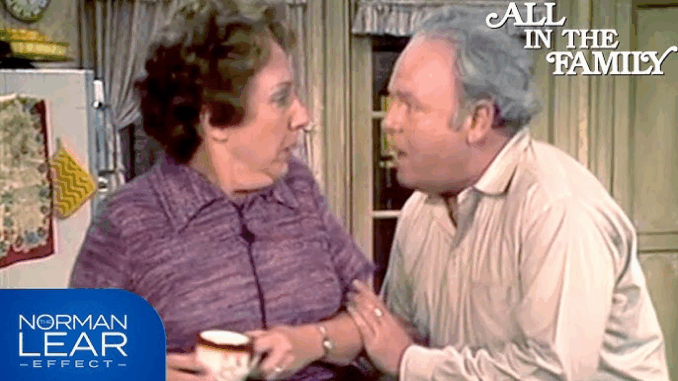
In a television world dominated by glamorous Manhattan penthouses and squeaky-clean suburban households, All in the Family dropped viewers right into the modest, working-class home of Archie Bunker—and it hit like a brick.
No polished sets. No perfect lives. Just a grumpy Queens dockworker, his quirky wife, their feminist daughter, and her hippie husband, locked in a never-ending generational culture war. And America couldn’t get enough.
For millions of Americans in the early 1970s, Archie Bunker wasn’t just a character—he was them. Fed up with inflation, the Vietnam War, and a society that seemed to be changing too fast, working-class viewers finally saw themselves reflected on-screen—not as punchlines, but as participants in the national conversation.
This was revolutionary.
All in the Family peeled back the layers of the American Dream and exposed what was underneath: anxiety, frustration, pride, and pain. Archie raged about everything—from “Meathead’s” politics to rising gas prices—not because he was evil, but because he was scared. Scared of being left behind. Scared of a world he no longer understood.
And yet, through the biting comedy, the show offered rare moments of vulnerability. Moments where Archie’s walls cracked, and audiences glimpsed the deeply human man behind the bigoted bravado.
Critics didn’t know what to make of it. Was the show endorsing Archie’s views or mocking them? Was it satire or realism? The answer, brilliantly, was both. Creator Norman Lear designed All in the Family to challenge every side—liberal or conservative, young or old.
It worked.
The series not only dominated the ratings, but it changed public perception of what television could do. It showed that sitcoms didn’t have to be mindless escapism. They could be raw, real, and radically honest.
In today’s media landscape—where political polarization and working-class frustration are hotter topics than ever—All in the Family feels eerily relevant. Archie’s rants could just as easily be ripped from today’s headlines. And maybe that’s why the show continues to resonate: it captured the voice of a forgotten America, long before anyone else dared to listen.